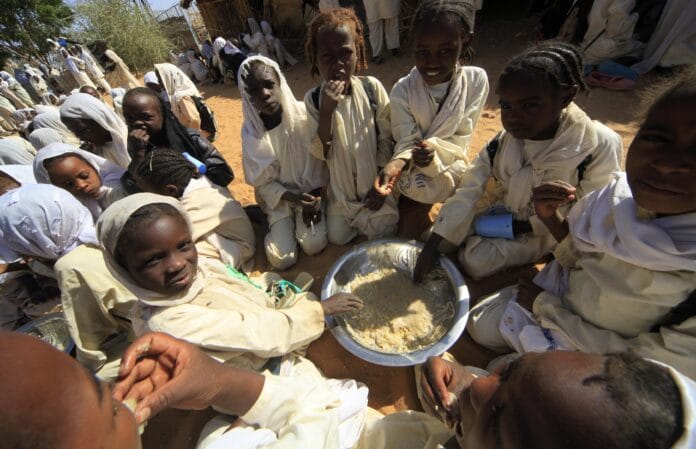The United Nations World Food Programme (WFP) and Government of Uganda will begin making emergency cash transfers in the coming days to more than 56,000 pregnant and breastfeeding women and children under the age of two, including refugees, in West Nile region.
The emergency intervention was made possible by Swedish funding to a social protection and health systems strengthening programme implemented jointly by WFP and UNICEF.
“Sweden had already committed US$25 million to support Uganda’s efforts to improve community and household resilience among refugees and host populations in West Nile when COVID-19 came,” said Ola Hällgren, Head of Development Cooperation at the Embassy of Sweden.
“The close partnership with WFP allowed us to quickly adapt our support at a time of crisis, re-allocating US$ 4 million to the emergency transfer,” he said. “Through this support and other interventions, Sweden remains committed to contributing to Uganda’s efforts to address the negative impact of COVID-19 on vulnerable communities,” Hällgren said.
Disruption during lockdown
The transfers are intended to stabilise women’s and children’s feeding following disruptions in their access to nutritious food during the COVID-19 lockdown, which coincided with WFP food ration cuts to all refugees living in 13 settlements in Uganda.
WFP will direct the cash to 43,300 women and children who are benefitting from its Mother and Child Health and Nutrition (MCHN) initiative in addition to another 13,200 people assisted through the Development Response to Displacement Impacts Project (DRDIP) and the Third Northern Uganda Social Action Fund 3 (NUSAF 3) public works programmes. DRDIP and NUSAF 3 are Government of Uganda projects implemented under the Office of the Prime Minister (OPM).
The Director, DRDIP/NUSAF, Dr Robert Limlim, said that the Government has an important role in mitigating the effects of COVID-19 on the most vulnerable individuals in Uganda.
“To be able to cover the most vulnerable households in a short time frame, cash transfers call for rigorous coordination between governments and humanitarian partners. That is where we come in, leveraging our experience working with Uganda’s refugee-hosting districts and settlements,” he said.
An Integrated Food Security Phase Classification (IPC) analysis for June to December 2020 recommended strengthened social protection as one of the means by which refugees and host communities can be assisted to recover from the impacts of COVID-19, ration cuts and other challenges such as flooding and post-harvest food losses.
“That is exactly what we are doing,” said WFP Country Director El-Khidir Daloum. “Moreover, we are using the most optimal means of assistance – cash – to cushion women and children threatened by malnutrition.”
Grateful for Sweden´s support
Daloum said that WFP is extremely grateful for Sweden’s support, which will enable it to assist the most vulnerable people during the global pandemic.
Each woman or child involved with the DRDIP/NUSAF 3 will receive a lump sum of UGS 144,000 to meet their nutritious food needs over a period of three months (UGS 48,000/month). Each of the women and children on the MCHN programme will receive a two-months’ equivalent of UGS 96,000.
The transfer will be distributed as cash through mobile bank vans to individuals identified as the most vulnerable by their communities in the districts of Adjumani, Arua, Madi Okollo, Koboko, Moyo, Obongi, Terego and Yumbe.




